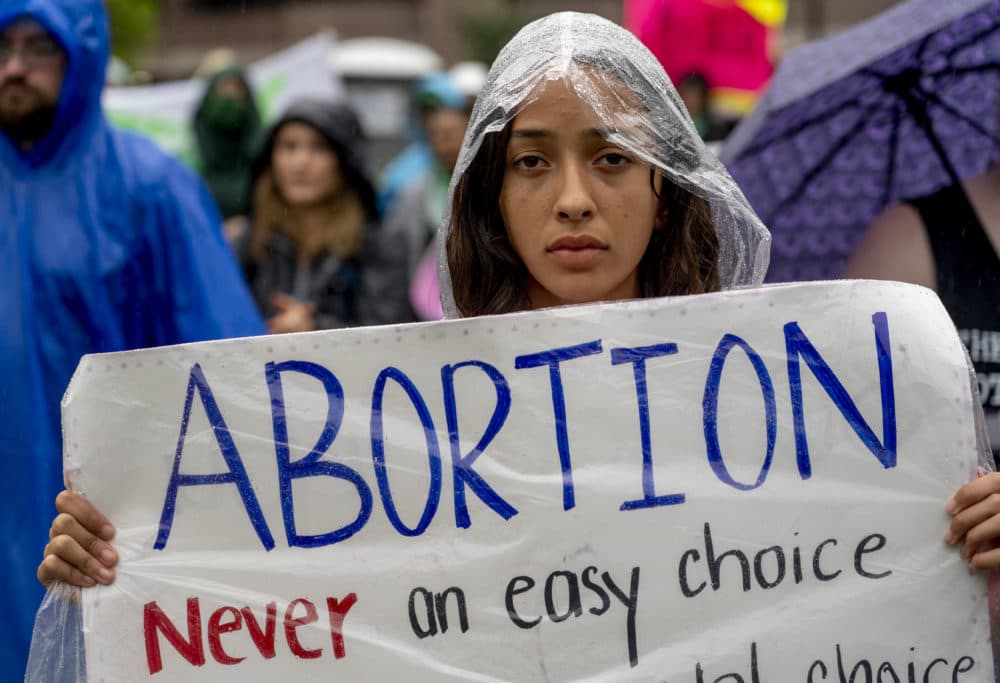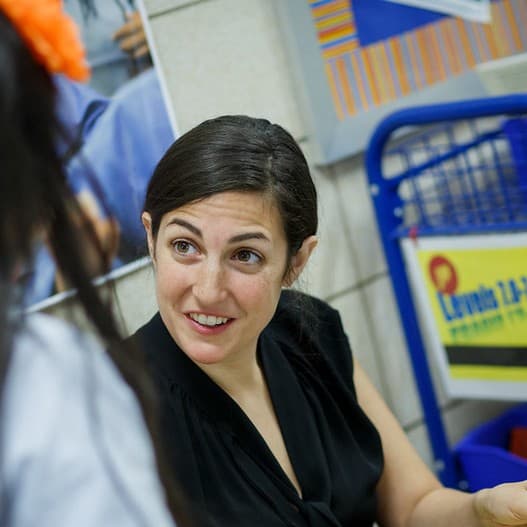Advertisement
Commentary
Choosing abortion wasn't about safety or survival

Davi, my daughter, was two months old the night Ruth Bader Ginsburg died. I tried not to let my chest heave, because Davi was asleep on my breast.
She whimpered. I stood, swayed and shushed. I whispered the Mourner’s Kaddish into her wisps of hair. I cried quietly about the future of the court and country and my fears of raising a daughter at this moment.
These past few weeks, since the overturn of Roe, I feel like I did that night.
Davi is now almost 2, and I spend my days giving her choices: the blue cup or green cup, the swing or slide, the zoo book or farm book. It can be tedious, but I don’t get tired of watching her face after she makes a choice and feels pride over her agency, her control over herself and her world.
In some ways, tending to Davi’s needs as an infant was simpler. I cuddled her for naps to keep her warm. I fed her every three hours so she would gain weight. Caring for her was about safety and survival. Caring for Davi today is still about safety and survival, but it’s also about helping her realize that her voice and choices impact her world.
[T]hese stories are not the only stories of abortion.
Recently, we’ve heard heartbreaking accounts of abortion as survival stories for women and people with uteruses: girls who suffered rape, women who must choose between their life and the life of a fetus, families faced with bringing another child into poverty or feeding their living child. I’m stunned by the bravery of the people sharing these stories. But these stories are not the only stories of abortion.
This is mine.
It had been a rough spring. Between COVID exposures and COVID infections, we had two weeks of child care in April and only three days of child care in May. Around this time, my husband started a new job, I took on double responsibility at work, and Davi suffered an infection and an allergic reaction that almost landed us in the ER.
By mid-June, everyone was healthy. Daycare was open. My husband and I took a day off work. We went on a hike, we drank beers outside, we had sex.
Advertisement
Five days later my nipples became sore and itchy. I last felt that way after conceiving Davi.
The next day, I felt nauseous. I told myself it was psychosomatic. We had used a condom. But I bought an early pregnancy test and took it in the Target bathroom. There was a pale, almost imperceptible second line.
... I was scared to say out loud that I wanted an abortion.
“I’m pregnant,” I told my husband.
“F---," he said. I started crying. He pulled me close. “How do you feel?”
“Scared,” I said. I was scared to face an unplanned pregnancy. And I was scared to say out loud that I wanted an abortion. “What about you?”
“I think I want a second kid,” he said. “But not right now. I don’t think this is best for us now.”
I cried again, this time with relief. It had been a rough few months, but it had also been a rough few years.
In 2018, my stepdad was diagnosed with pancreatic cancer. We spent a year traveling between Brooklyn and Boston. After my stepdad passed away, we moved to Boston, and then I got pregnant. My pregnancy quickly became a pandemic pregnancy.
It was scary and lonely. We spent the first year of Davi’s life in quarantine. We started daycare when she turned one, but it was a struggle juggling child care, work and sporadic isolation. We craved time, as a family of three, to live with some normalcy.
I scheduled an abortion.
For me, choosing abortion was not about choosing safety or survival. I am middle-class. I have health care, family nearby, and while paying for two kids would be challenging, we could make it work. It was about choosing a path that I wanted over a path that I didn’t. It was about exercising agency.
Davi’s desire for autonomy — her need to put on her own jacket, choose her own bedtime story — is not unique. Agency is a neurological need that develops in toddlerhood and lasts a lifetime.
I wish I could say I felt empowered by my choice. I’m a pro-choice feminist. I went to a women’s college. I interned for NARAL-Choice. Yet I felt such shame choosing an abortion for reasons other than safety and survival. I was too ashamed to even tell my closest friends, whose support I desperately needed.
This shame, while not written into the Supreme Court opinion, is part of the system’s design. Anti-choice legislation overtly limits our bodily autonomy, but internalized misogyny achieves the same end. When we feel shameful, we are less likely to seek support, to make choices that honor our needs, to feel control over ourselves and our world.
A week after I made my decision, I got my period. It had been a chemical pregnancy: egg and sperm met, but implantation never occurred. If I'd had an abortion, I’m not sure I would have been brave enough to write this.
But telling our stories can help us dismantle shame. Our stories can help us reclaim our essential need for choice.
